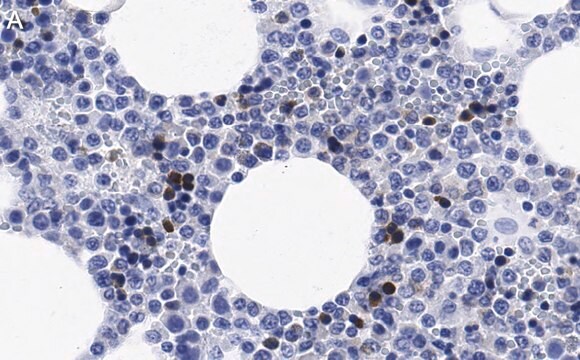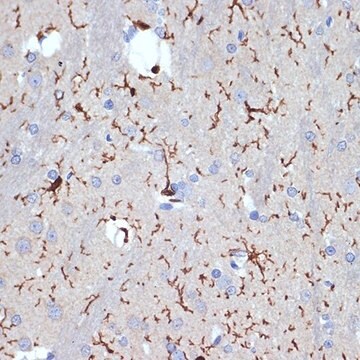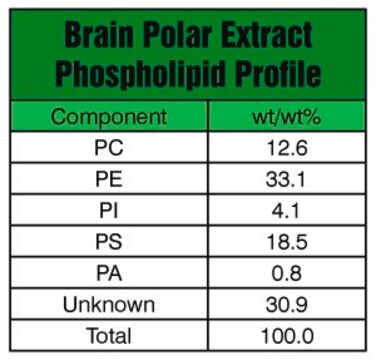ABN78A4
Anti-NeuN (rabbit) Antibody, Alexa Fluor™ 488 Conjugate
from rabbit, ALEXA FLUOR™ 488
Sinónimos:
NEUronal Nuclei, Neuronal Nuclei
About This Item
Productos recomendados
biological source
rabbit
Quality Level
conjugate
ALEXA FLUOR™ 488
antibody form
affinity isolated antibody
antibody product type
primary antibodies
clone
polyclonal
species reactivity
rat, mouse
technique(s)
immunocytochemistry: suitable
immunohistochemistry: suitable
shipped in
wet ice
target post-translational modification
unmodified
Gene Information
mouse ... Rbfox3(52897)
rat ... Rbfox3(287847)
General description
Specificity
Immunogen
Application
Neuroscience
Developmental Neuroscience
Quality
Immunohistochemistry Analysis: A 1:100 dilution of this antibody detected NeuN in adult mouse brain tissue.
Target description
Physical form
Storage and Stability
Analysis Note
Adult mouse brain tissue
Legal Information
Disclaimer
¿No encuentra el producto adecuado?
Pruebe nuestro Herramienta de selección de productos.
Storage Class
10 - Combustible liquids
wgk_germany
WGK 2
flash_point_f
Not applicable
flash_point_c
Not applicable
Certificados de análisis (COA)
Busque Certificados de análisis (COA) introduciendo el número de lote del producto. Los números de lote se encuentran en la etiqueta del producto después de las palabras «Lot» o «Batch»
¿Ya tiene este producto?
Encuentre la documentación para los productos que ha comprado recientemente en la Biblioteca de documentos.
Nuestro equipo de científicos tiene experiencia en todas las áreas de investigación: Ciencias de la vida, Ciencia de los materiales, Síntesis química, Cromatografía, Analítica y muchas otras.
Póngase en contacto con el Servicio técnico







